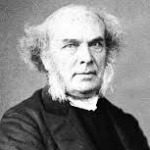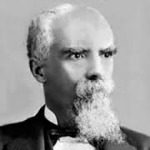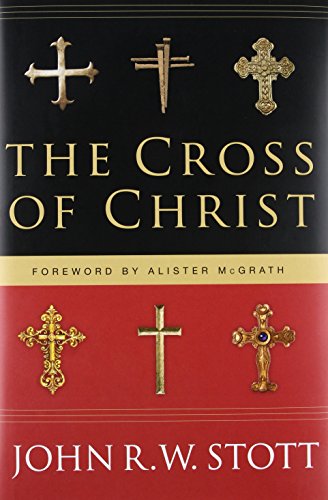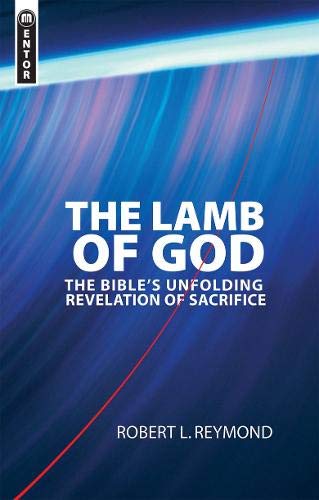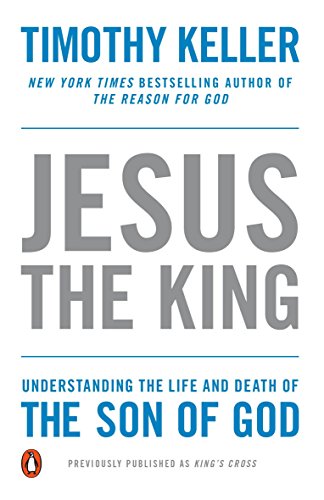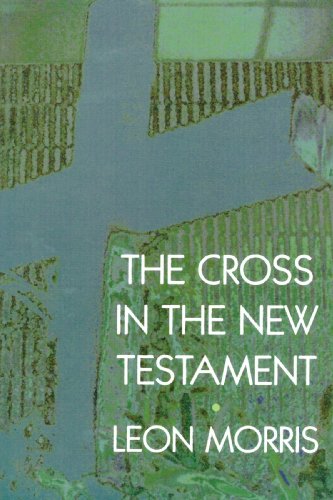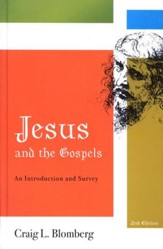Quotes about Jesus_Christ-Death-Cross
The cross stands as the focal point of the Christian faith. Without the cross the Bible is an enigma, and the Gospel of salvation is an empty hope.
The secret of a believer’s holy walk is his continual recurrence to the blood of the Surety, and his daily [communion] with a crucified and risen Lord. All divine life, and all precious fruits of it, pardon, peace, and holiness, spring from the cross. All fancied sanctification which does not arise wholly from the blood of the cross is nothing better than Pharisaism. If we would be holy, we must get to the cross, and dwell there; else, notwithstanding all our labor, diligence, fasting, praying and good works, we shall be yet void of real sanctification, destitute of those humble, gracious tempers which accompany a clear view of the cross.
All God’s plans have the mark of the cross on them, and all His plans have death to self in them.
It is at the cross where God’s Law and God’s grace are both most brilliantly displayed, where His justice and His mercy are both glorified. But it is also at the cross where we are most humbled. It is at the cross where we admit to God and to ourselves that there is absolutely nothing we can do to earn or merit our salvation.
Copied from The Gospel for Real Life by Jerry Bridges, © 2002, p. 98. Used by permission of NavPress – www.navpress.com. All rights reserved. Get this book!
But that Jesus of Nazareth could be the expected Messiah, as His disciples maintained, was out of the question. It is unlikely that the status, career and teaching of Jesus conformed in any way with Paul’s conception of the status, career and teaching of the Messiah – but that was not the conclusive argument in Paul’s (pre-converted) mind. The conclusive argument was simply this: Jesus had been crucified. A crucified Messiah was a contradiction of terms.
Paul – Apostle of the Heart Set Free, Eerdmans, 1977, www.eerdmans.com, p. 70-71. Get this book!
There is no tribunal so magnificent, no throne so stately, no show of triumph so distinguished, no chariot so elevated, as is the gibbet on which Christ hath subdued death and the devil.
I fear that the cross, without ever being disowned, is constantly in danger of being dismissed from the central place it must enjoy, by relatively peripheral insights that take on far too much weight. Whenever the periphery is in danger of displacing the center, we are not far removed from idolatry.
The Cross and Christian Ministry: An Exposition of Passages from 1 Corinthians, Baker, 1993, p. 38.
Both God’s love and God’s wrath are ratcheted up in the move from the old covenant to the new, from the Old Testament to the New. These themes barrel along through redemptive history, unresolved, until they come to a resounding climax – in the cross.
The Difficult Doctrine of the Love of God, Crossway, 2000, p. 70. Get this book!
The most fundamental reason Jesus Christ went to the cross is not His love for us (though that is true), but rather His desire to obey His Father’s will.
In the darkest night of the soul, Christians have something to hold onto that Job never knew – we know Christ crucified. Christians have learned that when there seems to be no other evidence of God’s love, they cannot escape the cross. “He who did not spare His own Son but gave Him up for us all – how will He not also, along with Him, graciously give us all things?” (Rom. 8:32)… When we suffer there will sometimes be mystery. Will there also be faith? Yes. If our attention is focused more on the cross and on the God of the cross than on the suffering itself.
All heaven is interested in the cross of Christ, all hell terribly afraid of it, while men are the only beings who more or less ignore its meaning.
We lost a paradise by sin, and have gained a heaven by the cross.
The soldiers that spat upon Him, and mocked Him, met not with a reproachful expression from Him. He held His peace at their clamors, offered His back to their scourges, reviled them not when He lay under the greatest violence of their rage, was patient under His sufferings, while He was despised more than any man by the people. His calmness was more stupendous than their rage, and the angels could not but more inexpressibly wonder at the patience of the sufferer, than the unmercifulness of the executioners; He was more willing to die, than they were to put Him to death; He suffered not by force, He courted the effusion of His blood, when He knew that the hour which His Father had appointed, and man needed, was approaching. Neither the infamy of the cross, nor the sharpness of the punishment, nor the present and foreseen ingratitude of his enemies, could deter Him from desiring and effecting man’s salvation. He went to it, not only as a duty, but an honor; and was content for a while to be the sport of devils, that He might be the spring of salvation to men.
This Sweet Savior exhaled from His voluntariness; He was not dragged to His sufferings, but suffered more willingly than we had greedily sinned against God. We had conscience checking us in sinning, but Christ had no conscience checking Him in suffering; it was his meat and drink to do His Father’s will. As God’s order makes His sacrifice capable of being satisfactory, so the free willingness of Christ makes it capable of being accepted for us, and applied to us.
To accept so willingly of such hard conditions for us, and die so ignominiously upon the cross we had deserved! He knew the burden of sin, He knew the terrors of hell, yet He did not shrink from the imputation of the one, or the sufferings of the other; it was not a willingness founded upon ignorance, but upon a clear-sighted affection. He was willing to be reproached, that we might be glorified; He would be like to us, that we might be conformed to Him; and took our human nature, that we might in a sort partake of His divine.
By the cross we know the gravity of sin and the greatness of God’s love toward us.
Let the very name of the cross be far away not only from the body of a Roman citizen, but even from his thoughts, his eyes, his ears.
Jesus is quickly thrown backwards with His shoulders against the wood. The legionnaire feels for the depression at the front of the wrist. He drives a heavy, square, wrought-iron nail through the wrist and deep into the wood. Quickly, he moves to the other side and repeats the action, being careful not to pull the arms too tightly but to allow some flexion and movement. The patibulum is then lifted in place at the top of the stipes [the vertical beam]…. The left foot is pressed backward against the right foot, and with both feet extended, toes down, a nail is driven through the arch of each, leaving the knees moderately flexed. The Victim is now crucified as He slowly sags down with more weight on the nails in the wrists, excruciating, fiery pain shoots along the fingers and up the arms to explode in the brain – the nails in the wrists are putting pressure on the median nerves As He pushes Himself upward to avoid this stretching torment, He places His full weight on the nail through His feet. Again there is the searing agony of the nail tearing through the nerves between the metatarsal bones of the feet. At this point, another phenomenon occurs. As the arms fatigue, great waves of cramps sweep over the muscles, knotting them in deep, relentless, throbbing pain. With these cramps comes the inability to push Himself upward… Air can be drawn into the lungs, but cannot be exhaled. Jesus fights to raise Himself in order to get even one small breath. Finally carbon dioxide builds up in the lungs and in the blood stream and the cramps partially subside. Spasmodically He is able to push Himself upward to exhale and bring in the life-giving oxygen… Hours of this limitless pain, cycles of twisting, joint-rending cramps, intermit tent partial asphyxiation, searing pain as tissue is torn from His lacerated back as He moves up and down against the rough timber: Then another agony begins. A deep crushing pain deep in the chest as the pericardium slowly fills with serum and begins to compress the heart… It is now almost over – the loss of tissue fluids has reached a critical level – the compressed heart is struggling to pump heavy, thick, sluggish blood into the tissues – the tortured lungs are making a frantic effort to gasp in small gulps of air… The body of Jesus is now in extremis and He can feel the chill of death creeping through His tissues… His mission of atonement has been completed. Finally he can allow His body to die.
Excerpted from: The Crucifixion of Jesus, Arizona Medicine v. 22, March 1965, p. 183-187.
By His death on the Cross, Christ has become the Lamb that was slain for us, our Redeemer, the One who has made peace between us and God, who has taken our guilt on Himself, who has conquered our most deadly enemy and has assuaged the well-deserved wrath of God.
Nine Marks of a Healthy Church, Crossway, 2000, p. 75. Get this book!
The judgment executed on Christ puts to death any thought that God could otherwise forgive sin. Unless there was no other way for us to be redeemed, the cross makes no sense… If there was any way to save the world other than by Jesus’ death on the cross, then His death was unnecessary and foolish. Would not a viable alternative make a mockery of Jesus’ own agonized words in the Garden of Gethsemane: “My Father, if it is possible, may this cup be taken from me” (Matt. 26:39)? The cup was not removed, for there was no other way.
Living in the Gap Between Promise and Reality, P&R Publishing, 1999, p. 104-105. Used by Permission.
One is taken aback by the emphasis upon the Cross in Revelation. Heaven does not “get over” the cross, as if there are better things to think about, heaven is not only Christ-centered, but cross-centered, and quite blaring about it.
The Glory of Christ, Crossway Books, a division of Good News Publishers, Wheaton Illinois 60187, www.crosswaybooks.org, 2002, p. 78.
To be a follower of the Crucified Christ means, sooner or later, a personal encounter with the cross. And the cross always entails loss.
The cross confirms all that we have said about the infinite offense of sin. It says that no finite sacrifice can atone for sin (Heb. 10:4). Nothing but a sacrifice of infinite value, God Himself, can atone for our offenses. In addition, no one but an infinite Being is capable of suffering sufficiently to atone for infinite offenses against an infinitely holy God.
Gospel-Powered Parenting, 2009, P&R Publishing, p. 94, Used by Permission. Get this book!
A death by crucifixion seems to include all that pain and death can have of the horrible and ghastly – dizziness, cramp, thirst, starvation, sleeplessness, traumatic fever, shame, publicity of shame, long continuous torment, horror of anticipation, mortification of intended wounds – all intensified just up to the point at which they can be endured at all, but all stopping just short of the point which would give to the sufferer the relief of unconsciousness.
The unnatural position made every movement painful; the lacerated veins and crushed tendons throbbed with incessant anguish; the wounds, inflamed by exposure, gradually gangrene; the arteries – especially at the head and stomach – became swollen and oppressed with surcharged blood, and while each variety of misery went on gradually increasing, there was added to them the intolerable pang of a burning and raging thirst, and all these physical complications caused an internal excitement and anxiety, which made the prospect of death itself – of death, the unknown enemy, at whose approach man usually shudders most – bear the aspect of a delicious and exquisite release.
One thing is clear. The 1st century executions were not like the modern ones, for they did not seek a quick, painless death or the preservation of any measure of dignity for the criminal. On the contrary, they sought an agonizing torture which completely humiliated him. And it is important that we understand this, for it helps us realize the agony of Christ’s death.
When Paul preached “the cross” he preached a message which explained that this instrument of rejection had been used by God as His instrument of reconciliation. Man’s means of bringing death to Jesus was God’s means to bring life to the world. Man’s symbol of rejecting Christ was God’s symbol of forgiveness for man. This is why Paul boasted about the cross!
When you look at the Cross, what do you see? You see God’s awesome faithfulness. Nothing – not even the instinct to spare His own Son – will turn Him back from keeping His word.
How does Christ’s death on the Cross demonstrate God’s wisdom? In this way: Through the Cross, our sin is judged, yet sinful men and women are forgiven precisely because God has judged that sin in Jesus Christ instead of in us. God has done what seemed morally impossible in a way that demonstrates rather than denies His holiness and justice. That is why the Cross is the “trysting place, where Heaven’s love and Heaven’s justice meet.” The Cross is the expression of God’s loving genius.
How…could God remain equally faithful to His love for us and His just judgment of our sins? The glory of the cross, its unimaginable wisdom lies in the way God has devised to provide salvation for His people.
Christ is to us just what the cross is. All that Christ was in heaven or on earth was put into what He did there… You do not understand Christ till you understand His cross.
Crucifixion was never a private event. It was always raw, and searingly public, because its purpose was to terrify the masses into submission to the authorities. Crosses often lined the main roads into cities, holding the broken writhing bodies of the condemned, or displaying the rotting corpses of the dead. The Romans even scheduled public crucifixions to coincide with religious festivals, insuring the maximum number of people present to witness the horror. Murderers, robbers, traitors, and slaves were crucified, brutally, by the thousands all over the empire and always deliberately in full public view. The horror of the cross was inescapable, and the Romans intended it to be that way.
The Gospel – God’s Self-Substitution for Sinners by Greg Gilbert, taken from Don’t Call it a Comeback, edited by Kevin DeYoung, copyright 2011, Crossway Books, a division of Good News Publishers, Wheaton Illinois 60187, www.crosswaybooks.org, page 71-72. Get this book!
Shredded flesh against unforgiving wood, iron stakes pounded through bone and wracked nerves, joints wrenched out of socket by the sheer dead weight of the body, public humiliation before the eyes of family, friends, and the world – that was death on the cross, “the infamous stake” as the Romans called it, “the barren wood,” the maxima mala crux. Or as the Greeks spat it out, the stauros. No wonder no one talked about it. No wonder parents hid their children’s eyes from it. The stauros was a loathsome thing, and the one who died on it was loathsome too, a vile criminal whose only use was to hang there as a putrid, decaying warning to anyone else who might follow his example. That is how Jesus died.
The Gospel – God’s Self-Substitution for Sinners by Greg Gilbert, taken from Don’t Call it a Comeback, edited by Kevin DeYoung, copyright 2011, Crossway Books, a division of Good News Publishers, Wheaton Illinois 60187, www.crosswaybooks.org, page 72. Get this book!
Paul’s matter-of-fact acknowledgment, born of twenty years of first-hand experience, that the message he was preaching – that salvation as to be had through a crucified God – was considered by everyone to be either deeply obscene or totally, completely, tin-foil-hat ridiculous.
The Gospel – God’s Self-Substitution for Sinners by Greg Gilbert, taken from Don’t Call it a Comeback, edited by Kevin DeYoung, copyright 2011, Crossway Books, a division of Good News Publishers, Wheaton Illinois 60187, www.crosswaybooks.org, page 72. Get this book!
Surely Paul could have made the gospel more palatable – and less dangerous – by saying it was about something else. Something cleaner and less ridiculous than the cross. Something more glorious. Less disgusting. He didn’t do that, though. “I decided,” Paul said, “to know nothing among you except Jesus Christ and Him crucified” (1 Cor. 2:2). In the face of the worst cultural prejudice imaginable, he fixed the entire gospel squarely and immovably on the fact that Jesus was tacked to a stauros and left to die. If he had been trying to find a surefire way to turn first-century people off from his “good news,” he couldn’t have done better than that! So why did he do it? It’s simple. He did it because he knew that leaving the cross out, or running past it with a glance, or making it peripheral to the gospel, or allowing anything else to displace it at the center of the gospel would make it, finally, no gospel at all.
The Gospel – God’s Self-Substitution for Sinners by Greg Gilbert, taken from Don’t Call it a Comeback, edited by Kevin DeYoung, copyright 2011, Crossway Books, a division of Good News Publishers, Wheaton Illinois 60187, www.crosswaybooks.org, page 73. Get this book!
For Paul, preaching “Christ crucified” has a much broader meaning than focusing every sermon on Jesus’ suffering on the cross. The cross of Christ is indeed the focal point for Paul’s preaching, but, as Paul’s sermons and letters demonstrate, the cross of Christ reveals much more than the suffering of Jesus. It also provides a viewpoint on the perfect justice of God and the dreadful catastrophe of human sin.
We need men of the cross, with the message of the cross, bearing the marks of the cross.
The cross is not an isolated individual aspect of theology, but is itself the foundation of that theology. The cross both dominates and permeates all true Christian theology, with its thread being woven throughout the entirety of its fabric.
The cross exposes man’s desperate state, his utter bankruptcy that made such suffering necessary. Accordingly, it reveals the folly of all human pride. It teaches man to say: “I never knew myself as a sinner, nor recognized Christ as my Savior until upon the cross I saw, My God, who died to meet the law that I had broken; then I saw, My sin, and then my Savior.” No one is ever able to see on that cross “the wonder of God’s glorious love” until he also sees “his own unworthiness,” and “pours contempt on all his pride.”
The man of sorrow sees it coming toward Him. He already senses something of the perfidy, the hypocrisy, the calumny, the mockery, the pain, and the shame which like an avalanche threatens to overwhelm Him. Yet, He does not retreat or even stand still. With unflinching determination, He walks right into it, for He knows that this is necessary in order that His people may be saved. “Having loved His own…He loved them to the uttermost” (John 13:1).
The transformation of the bloodstained wooden cross of Calvary to the diamond-studded gold cross of a cathedral may well signify man’s attempt to remove the offense of the cross.
Come, and see the victories of the cross. Christ’s wounds are thy healings, His agonies thy repose, His conflicts thy conquests, His groans thy songs, His pains thine ease, His shame thy glory, His death thy life, His sufferings thy salvation.
This dark problem of unmerited suffering lights up as we see what happened at the cross. Jesus did not bear the Cross – He used it. The Cross was sin, and He turned it into the healing of sin; the Cross was hate, and He turned it into a manifestation of the love of God. The Cross showed man at his worst, and there Jesus shows God at His redemptive best. The cruelest, darkest word that life ever spoke was at the Cross, and Jesus took all that cruelty and darkness and turned it into pure love and pure light… What a light it sheds upon the tragedy of life to find such a fact at the center of our faith.
The cross stands for all that was accomplished through the life, death, and resurrection of Jesus, the Son of God. It focuses on His substitutionary death at Calvary but includes everything that gave meaning to that act. His preexistent state in glory. His incarnation. His life of perfect obedience. His suffering. His resurrection. His ascension. His present intercession and reign in glory. His triumphant return.
Worship Matters, Crossway Books, 2008, Crossway Books, a division of Good News Publishers, Wheaton Illinois 60187, www.crosswaybooks.org, p. 72. Get this book!
The cross ultimately points not to the greatness of our worth but to the greatness of our sin… The cross sets us free from the misguided self-love to passionately love the One who redeemed us.
Worship Matters, Crossway Books, a division of Good News Publishers, Wheaton Illinois 60187, www.crosswaybooks.org, 2008, p. 78. Get this book!
In the cross we find a perfect reconciling of God’s blazing holiness, holy justice, incomprehensible wisdom, omnipotent power and unfathomable love.
Worship Matters, Crossway Books, a division of Good News Publishers, Wheaton Illinois 60187, www.crosswaybooks.org, 2008, p. 65. Get this book!
On that cross, Christ endured the holocaust of God’s wrath against our sin and exhausted it.
The Story of Sacrifice by Michael Lawrence taken from Biblical Theology by Michael Lawrence, copyright 2010, Crossway Books, a division of Good News Publishers, Wheaton Illinois 60187, www.crosswaybooks.org. Page 163.
So the Cross does not merely tell us that God forgives, it tells us that that is God’s way of making forgiveness possible. It is the way in which we understand how God forgives. I will go further: How can God forgive and still remain God? – That is the question. The Cross is the vindication of God. The Cross is the vindication of the character of God. The Cross not only shows the love of God more gloriously than anything else, it shows His righteousness, His justice, His holiness, and all the glory of His eternal attributes. They are all to be seen shining together there. If you do not see them all you have not seen the Cross.
There are certain things which have to be said over and over again, of necessity, and yet this is the marvel and the wonder of the cross, that however many times a man may preach about it, he has never finished preaching about it. There is always something fresh to say, always something new. There is a great central message that is always there, but nothing is so wonderful as to see that one thing in different ways.
Whenever the true message of the cross is abolished, the anger of hypocrites and heretics eases…and all things are in peace. This is a sure token that the devil is guarding the entry of that house, and that the pure doctrine of God’s Word has been taken away. The church, then, is in the BEST state when Satan assaileth it on every side…both with subtle sleights, and outright violence. And (likewise) it is in the WORST state, when it is most at peace!
No man understands the Scriptures, unless he be acquainted with the cross.
What a contrast outside the city of Jerusalem that day! On the one hand, redemption is being purchased for those God would redeem; on the other hand, the soldiers mark time by playing their tired games, waiting for the ordeal to be over. Those who love Jesus are in grieving despair; those who hate Him are in a mood of spiteful rejoicing. Heaven hovers over the cross, waiting for the payment of our sin to be made. But hell is there, too, with its cruelty, indifference and darkness.
Cries from the Cross, Moody, 2002, p. 85. Get this book!
Only at the cross do we see the love of God without ambiguity. Here is God’s farthest reach, His most ambitious rescue effort. God personally came to our side of the chasm, willing to suffer for us and with us. At the cross His love burst upon the world with unmistakable clarity. Here at least we have found solid reasons to believe that there was a genuine connection between God and man.
Cries from the Cross, Moody Publishers, 2002, p. 87. Get this book!
We don’t want to be personally or institutionally offensive, but we cannot buffer the offense of the cross.
Here is why all the central truths of the gospel focus on the cross: It reveals how heinous our sin is. It shows the intensity of God’s wrath against sin. It reveals the great love of God in paying such a high price for redemption. But it also serves as a fitting metaphor for the cost of following Christ. Jesus himself spoke repeatedly of the cross in those terms.
Don’t ever think for one split second that Jesus came into the world to offer a kingdom to Israel without a cross and that somehow when the Jews rejected Him as King, He had to go and die on the cross. He never offered a kingdom without a cross. He was the Lamb slain from before the foundation of the world.
Sermon, Approaching the Cross with Determined Anticipation – part 2 (www.gty.org/Resources/issues/520) at www.gty.org. © 1969-2008. Grace to You. All rights reserved. Used by Permission.
God arrived at Calvary – not in light, but in darkness. He showed up to unleash judgment, not in the eschatological sense in the future against the ungodly, but in the soteriological sense against the godly One. What is really going on at Calvary, folks – and this is where you go deeper with the understanding of it – it’s beyond the physical suffering, it’s beyond the sacrifice of Christ. What’s happening here is divine wrath is being poured out in its final form. Eternal wrath is about to be released and the darkness is everywhere. You could say it another way. God brought hell to Jerusalem that day.
The King Crucified Consummation at Calvary. The sermon originally appeared at: (https://www.gty.org/library/sermons-library/42-288/the-king-crucified-consummation-at-calvary) at www.gty.org. © 1969-2008. Grace to You. All rights reserved. Used by Permission.
God unleashed the full extent of His fury on Jesus Christ. As Isaiah put it in Isaiah 13:9, “Wrath with fierce anger.” Hell came there. What is hell? Hell is where God punishes people forever. Hell is where God pours out His fury on people forever. God is the power behind the punishment in hell. When you say that hell is being separated from God, only in the sense of His comforting presence, not in the sense of His punishing presence. He is the one who destroys both soul and body in hell. He is the King of hell, Satan is not. And God, who is the punisher of all the souls in eternal hell, shows up in the darkness of Calvary to punish His Son, and He gives His Son eternal hell on behalf of all who would ever believe.
The King Crucified Consummation at Calvary. The sermon originally appeared at: (https://www.gty.org/library/sermons-library/42-288/the-king-crucified-consummation-at-calvary) at www.gty.org. © 1969-2008. Grace to You. All rights reserved. Used by Permission.
Infinite wrath moved by infinite righteousness releases infinite punishment on the infinite Son who can absorb an eternal hell for all who will ever believe in three hours. It is here that He bears in His own body our sins. It is here that He has made sin for us who knew no sin. It is here that He is wounded for our transgressions, crushed for our iniquity. It is here that He is made a curse for us. These are the three hours of the wrath of God on Him.
The King Crucified Consummation at Calvary. The sermon originally appeared at: (https://www.gty.org/library/sermons-library/42-288/the-king-crucified-consummation-at-calvary) at www.gty.org. © 1969-2008. Grace to You. All rights reserved. Used by Permission.
This is a stunning thing to think about. All the people who will spend forever in hell will spend forever there because they will never be able to pay for their sins. And yet Jesus, in three hours, would pay in full for all the sins of all the people who would ever believe. How? Because an infinite amount of wrath can only be absorbed by an infinite person.
The King Crucified Consummation at Calvary. The sermon originally appeared at: (https://www.gty.org/library/sermons-library/42-288/the-king-crucified-consummation-at-calvary) at www.gty.org. © 1969-2008. Grace to You. All rights reserved. Used by Permission.
Nothing else is of equal importance. The message of the cross is the Christian’s hope, confidence, and assurance. Heaven will be spent marveling at the work of Christ, the God-Man who suffered in the place of us sinners.
The Cross Centered Life, 2002, Used by permission of Sovereign Grace Ministries, p. 75.
The cross is not a nebulous, indefinable symbol of self-giving love; on the contrary, the cross is the monumental display of how God can be just and still pardon guilty sinners. At the cross, God, having imputed the sins of His people to Christ, pronounces judgment upon His Son as the representative of His people. There on the cross God pours out the vials of His wrath unmixed with mercy until His Son cries out, “My God, my God, why have you forsaken me?” (Psalm 22:1; Matthew 27:46).
The wounds of Christ were the greatest outlets of His glory that ever were. The divine glory shone more out of His wounds than out of all His life before.
We never, therefore, move on from the cross of Christ, only to a more profound understanding of the cross(David Prior).
Taken from “Message of 1 Corinthians: Life in the Local Church.” Copyright (c) 1985, p. 51, InterVarsity Christian Fellowship/USA. Used with permission of InterVarsity Press, P.O. Box 1400, Downers Grove, IL 60515. www.ivpress.com.
The punishment was meted out for such crimes as treason, desertion in the face of the enemy, robbery, piracy, assassination, sedition, etc. It continued in vogue in the Roman Empire till the day of Constantine, when it was abolished as an insult to Christianity. Among the Romans crucifixion was preceded by scourging, undoubtedly to hasten impending death. The victim then bore his own cross, or at least the upright beam, to the place of execution. This in itself proves that the structure was less ponderous than is commonly supposed. When he was tied to the cross nothing further was done and he was left to die from starvation. If he was nailed to the cross, at least in Judea, a stupefying drink was given him to deaden the agony. The number of nails used seems to have been indeterminate. A tablet, on which the feet rested or on which the body was partly supported, seems to have been a part of the cross to keep the wounds from tearing through the transfixed members (Iren., Adv. haer., ii.42). The suffering of death by crucifixion was intense, especially in hot climates. Severe local inflammation, coupled with an insignificant bleeding of the jagged wounds, produced traumatic fever, which was aggravated the exposure to the heat of the sun, the strained of the body and insufferable thirst. The swelled about the rough nails and the torn lacerated tendons and nerves caused excruciating agony. The arteries of the head and stomach were surcharged with blood and a terrific throbbing headache ensued. The mind was confused and filled with anxiety and dread foreboding. The victim of crucifixion literally died a thousand deaths. Tetanus not rarely supervened and the rigors of the attending convulsions would tear at the wounds and add to the burden of pain, till at last the bodily forces were exhausted and the victim sank to unconsciousness and death. The sufferings were so frightful that “even among the raging passions of war pity was sometimes excited” (BJ, V, xi, 1). The length of this agony was wholly determined by the constitution of the victim, but death rarely ensued before thirty-six hours had elapsed. Instances are on record of victims of the cross who survived their terrible injuries when taken down from the cross after many hours of suspension (Josephus, Vita, 75). Death was sometimes hastened by breaking the legs of the victims and by a hard blow delivered under the armpit before crucifixion. Crura fracta was a well-known Roman term (Cicero Phil. xiii.12). The sudden death of Christ evidently was a matter of astonishment (Mark 15:44). The peculiar symptoms mentioned by John (19:34) would seem to point to a rupture of the heart, of which the Savior died, independent of the cross itself, or perhaps hastened by its agony (Henry Dosker).
[In heaven] the crucifixion, an obvious result of evil and injustice, will not have been passed over and overcome; it will actually be featured – an object of eternal wonder and devotion (William Dyrness).
Taken from Christian Apologetics in a World Community by William Dyrness. Copyright(c) 1983. Used by permission of InterVarsity Press, PO Box 1400, Downers Grove, IL 60515, p. 163. www.ivpress.com.
Without the cross, the conflagration lighted on the earth by the presence of Jesus would very soon be extinguished, and the world would speedily fall back to its undisturbed level (Frederic Godet).
At the cross we catch a glimpse of the enormity of our sins’ offense to God. Here we learn about hell as Jesus, God’s beloved Son, takes the retributive punishment that we deserved, even separation from God, to deliver us. Here we look deeply into the mystery of the love a holy and righteous God for sinners.
Hell on Trial: The Case for Eternal Punishment, P&R Publishers, 1995, p. 214. Used by permission.
The supreme example of controlling, directing influence which God exerts upon the wicked is the Cross of Christ with all its attendant circumstances. If ever the superintending providence of God was witnessed, it was there. From all eternity God had predestined every detail of that event of all events. Nothing was left to chance or the caprice of man. God had decreed when and where and how His blessed Son was to die… Not a thing occurred except as God had ordained, and all that He had ordained took place exactly as He purposed.
If we want the meaning and the worth and the beauty and the power of the cross of Christ to be seen and loved in our churches, and if the design of the death of His Son is not only to reconcile us to God but to reconcile alienated ethnic groups to each other in Christ, then will we not display and magnify the cross of Christ better by more and deeper and sweeter ethnic diversity and unity in our worship and life?
At the all-important pivot of human history, the worst sin ever committed served to show the greatest glory of Christ and obtain the sin-conquering gift of God’s grace. God did not just overcome evil at the cross. He made evil commit suicide in doing its worst evil.
Spectacular Sins by John Piper, Crossway, 2008, p. 12. Crossway Books, a division of Good News Publishers, Wheaton Illinois 60187, www.crosswaybooks.org.
Some Christians misunderstand God’s plan for His kingdom. They want to establish it their own way rather than waiting for God to do it His way. God’s way of establishing the kingdom is primarily through the preaching of the cross. But that does not seem very effective to most people. They would prefer to use force, which is the kind of thinking that leads to bloody crusades. Or they would rather entertain people into the kingdom, which is the kind of thinking that leads to man-centered worship.
Take away the cross of Christ, and the Bible is a dark book.
If Christ had not gone to the cross and suffered in our stead, the just for the unjust, there would not have been a spark of hope for us. There would have been a mighty gulf between ourselves and God, which no man ever could have passed.
Take away the cross of Christ, and the Bible is a dark book.
This is no mere question of controversy; this is not one of those points on which men may agree to differ, and feel that differences will not shut them out of heaven. A man must be right on this subject, or he is lost forever. Heaven or hell, happiness or misery, life or death, blessing or cursing in the last day – all hinges on the answer to this question: “What do you think about the cross of Christ?”
All Christ’s sufferings on the cross were foreordained. They did not come on Him by chance or accident: they were all planned, counseled, and determined from all eternity. The cross was foreseen in all the provisions of the everlasting Trinity, for the salvation of sinners. In the purposes of God the cross was set up from everlasting. Not one throb of pain did Jesus feel, not one precious drop of blood did Jesus shed, which had not been appointed long ago. Infinite wisdom planned that redemption should be by the cross. Infinite wisdom brought Jesus to the cross in due time. He was crucified by the determinate counsel and foreknowledge of God.
The next time someone comes up to you and says, “I don’t really believe Jesus died on the cross,” you may wish to respond (in love!) in the following manner: “Let’s conduct an experiment. We’ll put you through so much stress that you actually begin to sweat drops of blood. We’ll beat you in the face. We’ll keep you awake one night due to intense sorrow and then another night due to lengthy legal trials. During this time you will receive no food or water. Then we’ll repeatedly beat you with a whip containing sharp bones and metal balls on the end of each strand. Your skin will be shredded, your muscles will be torn, your organs will be lacerated and you will experience extensive blood loss. We’ll place a crown of thorns of your head and then use the wooded sceptre we placed in your hand to beat you some more. Then we’ll place a heavy beam weighing 75-125 pounds on your back and force you to carry it to your place of execution. When at the site, we’ll drive 5-7 inch nails through your wrists and ankles. We’ll let birds of prey tear at your body as you suffocate in excruciating pain for six hours on the cross. Then, we’ll pierce you in the side with a 6-foot infantry spear, puncturing your heart, and watch the emission of both blood and water. Finally we will place you in a tomb, tightly wrap your body in pungent spices and cover your face, and permit you no medical attention. Would you like to undergo the experiment? Do you think you could survive?”
Someone once said we are all brought to the same level at the foot of the cross. The cross pours contempt on our pride and screams to us that reconciliation with God was entirely the work of Jesus. The cross screams to us that God justifies all His children with the same infinite love. The cross screams to us that we are all adopted into the same spiritual family in the same way with the same privileges. The cross screams to us that the sins of disunity such as discord, hatred, bitterness, strife, divisiveness, malice, jealousy, envy, disgust, indifference, unforgiveness have all been shattered by the cross and are therefore unacceptable amongst God’s redeemed. The cross teaches us that the grace that saves us results in grace that transforms us to live more like Jesus Christ, the “Prince of Peace” Himself. And the cross teaches us to join Paul in his never-ending refrain of boasting only in the cross (Gal. 6:14). And with our eyes on the cross, we strike a deathblow to our pride which fuels our divisions.
The next time your heart is indifferent toward sin, think for a moment of what sin cost your Savior on the cross. Think about His lacerated back ripped open to the bone from the Roman scourge. Think how He suffered for a breath of air as He extended His bloody body up the vertical beam of the rugged cross. Think about the splinters that dug deeper into His freshly cut wounds with every movement. Think about the large spikes that pierced His hands and His feet penetrating deeply into nerve endings. Think of the slow suffocation as Jesus hung there in the nude, mocked by the onlookers. Jesus didn’t die for His own sin; He died for ours. “[He was] pierced through for our transgressions… [He was] crushed for our iniquities” (Isa. 53:5). Does the love of Christ compel you to turn from that which brought Him unspeakable anguish?
The sweetest fragrance, the most beautiful aroma that God has ever detected emanating from this planet, was the aroma of the perfect sacrifice of Jesus that was offered once and for all on the cross.
The Purpose of God, An Exposition of Ephesians, Christian Focus Publications, 1994, p. 121.
We took our sins and drove them like nails through his hands and feet. We lifted him high up on the cross of our transgressions, and then we pierced his heart through with the spear of our unbelief.
See how red your guilt is. Mark the scarlet stain. If you were to wash your soul in the Atlantic Ocean, you might incarnadine every wave that washes all its shores, and yet the crimson spots of your transgression would still remain. But plunge into the “fountain filled with blood, drawn from Immanuel’s veins,” and in an instant you are whiter than snow. Every speck, spot, and stain of sin is gone, and gone forever.
Leave out the cross and you have killed the religion of Jesus. Atonement by the blood of Jesus is not an arm of Christian truth; it is the heart of it.
And as I looked upon that corpse [of Jesus], I heard a footstep, and wondered where it was. I listened, and I clearly perceived that the murderer was close at hand. It was dark, and I groped about to find him. I found that, somehow or other, wherever I put out my hand, I could not meet with him, for he was nearer to me than my hand would go. At last I put my hand upon my breast. “I have thee now,” said I; for lo! he was in my own heart! The murderer was hiding within my own bosom, dwelling in the recesses of my inmost soul. Ah! Then I wept indeed, that I, in the very presence of my murdered Master, should be harbouring the murderer, and I felt myself most guilty while I bowed over His corpse, and sang that plaintive hymn: “Twas you, my sins, my cruel sins, His chief tormentors were; each of my crimes became a nail, and unbelief the spear.” My sins were the scourges which lacerated those blessed shoulders, and crowned with thorns those bleeding brows. My sins cried, “Crucify him! Crucify him!” and laid the cross upon his gracious shoulders. His being led forth to die is sorrow enough for one eternity; but my having been His murderer is more, infinitely more grief, than one poor fountain of tears can express
Crucifixion was a death worthy to have been invented by devils. The pain, which it involved, was immeasurable. I will not torture you by describing it. I know dear hearts that cannot read of it without tears and without lying awake for nights afterwards.
Every time we look at the cross, Christ seems to say to us, “I am here because of you. It is your sin I am bearing, your curse I am suffering, your debt I am paying, your death I am dying.” Nothing in history or in the universe cuts us down to size like the cross. All of us have inflated views of ourselves, especially in self-righteousness, until we have visited a place called Calvary. It is there, at the foot of the cross, that we shrink to our true size.
Taken from The Message of Galatians by John R.W. Stott. Copyright(c) 1968 John R. W. Stott. Used by permission of InterVarsity Press, PO Box 1400, Downers Grove, IL 60515. www.ivpress.com. http://www.ivpress.com/cgi-ivpress/book.pl/code=288, p. 179.
Until you see the cross as that which is done by you, you will never appreciate that it is done for you.
The repeated promises in the Qur’an of the forgiveness of a compassionate and merciful Allah are all made to the meritorious, whose merits have been weighed in Allah’s scales, whereas the gospel is good news of mercy to the undeserving. The symbol of the religion of Jesus is the cross, not the scales.
[Jesus] rose up from the place where the kingdoms of the world shimmered before Him, where crowns flashed and banners rustled, and hosts of enthusiastic people were ready to acclaim Him, and quietly walked the way of poverty and suffering to the cross.
If I see aright, the cross of popular evangelicalism is not the cross of the New Testament. It is, rather, a new bright ornament upon the bosom of a self-assured and carnal Christianity. The old cross slew men, the new cross entertains them. The old cross condemned; the new cross amuses. The old cross destroyed confidence in the flesh; the new cross encourages it.
The cross…always has its way. It wins by defeating its opponent and imposing its will upon him. It always dominates. It never compromises, never dickers nor confers, never surrenders a point for the sake of peace. It cares not for peace; it cares only to end its opposition as fast as possible. With perfect knowledge of all this, Christ said, “If any man will come after me, let him deny himself, and take up his cross, and follow me.” So the cross not only brings Christ’s life to an end, it ends also the first life, the old life, of every one of His true followers. It destroys the old pattern, the Adam pattern, in the believer’s life, and brings it to an end. Then the God who raised Christ from the dead raises the believer and a new life begins. This, and nothing less, is true Christianity… We must do something about the cross, and one of two things only we can do – flee it or die upon it.
The Root of the Righteous, Harrisburg, PA: Christian Publications, 1955, p. 61-63. Get this book!
The cross is the lightning rod of grace that short-circuits God’s wrath to Christ so that only the light of His love remains for believers.
The man with a cross no longer controls his destiny; he lost control when he picked up his cross. That cross immediately became to him an all-absorbing interest, an overwhelming interference. No matter what he may desire to do, there is but one thing he can do; that is, move on toward the place of crucifixion.
Death by crucifixion seems to include all that pain and death can have of the horrible and the ghastly, dizziness, cramp, thirst, starvation, sleeplessness, traumatic fever, tetanus, shame, long continuance of torment, horror of anticipation, mortification of open wounds, breathlessness, all intensified just up to the point at which they can be endured at all, but stopping short of the point which would give the sufferer the relief of unconsciousness. The unnatural position made every movement painful, the lacerated veins and crushed tendons throbbed with incessant anguish. The wounds inflamed by exposure gradually gangrened, the arteries especially at the head and stomach became swollen, compressed with surcharged blood while each variety of misery went on gradually increasing. There was added to them the intolerable pang of a burning and raging thirst. All these physical complications cause an internal excitement and anxiety and in all this you couldn’t catch your breath.
Jesus did not die to increase our self-esteem. Rather, Jesus died to bring glory to the Father by redeeming people from the curse of sin. Of course, the cross has many benefits, one being that we are no longer cast out of the presence of God and we have intimacy with the Holy One. But the cross deals with our sin problem, our spiritual need.
When People are Big and God is Small, P&R Publishing, 1997, p. 146-147. Used by Permission. Get this book!
At the heart of the story stands the cross of Christ where evil did its worst and met its match.
The theology of the cross simplifies the spiritual life by standing as its primary reference point. Everything in Christian spirituality relates to it. Through the cross we begin our spirituality and by the power and example of the cross we live it.
The cross lies at the heart of all God did through Jesus Christ. It is the supreme example of God’s power and wisdom displayed in what the world considers weakness and foolishness (1 Corinthians 1:18-25). And anyone who wants to know God must find Him in Christ crucified.
As Jesus was willing to go to the cross to do the will of the Father (Philippians 2:8), so we must be willing to follow Jesus to the cross, daily dying to any desires that conflict with His so that we may daily live for Him. While we may truly speak of glory inaugurated by the resurrection and ascension of Jesus, identifying with following Him in this world involves suffering. Indeed, there will be no end to cross-bearing this side of Heaven.
The cross of Jesus displays the most awful exhibition of God’s hatred of sin and at the same time the most august manifestation of His readiness to pardon it. Pardon, full and free, is written out in every drop of blood that is seen, is proclaimed in every groan that is heard, and shines in the very prodigy of mercy that closes the solemn scene upon the cross. O blessed door of return, open and never shut, to the wanderer from God! How glorious, how free, how accessible! Here the sinful, the vile, the guilty, the unworthy, the poor, the penniless, may come. Here too the weary spirit may bring its burden, the broken spirit its sorrow, the guilty spirit its sin, the backsliding spirit its wandering. All are welcome here.

